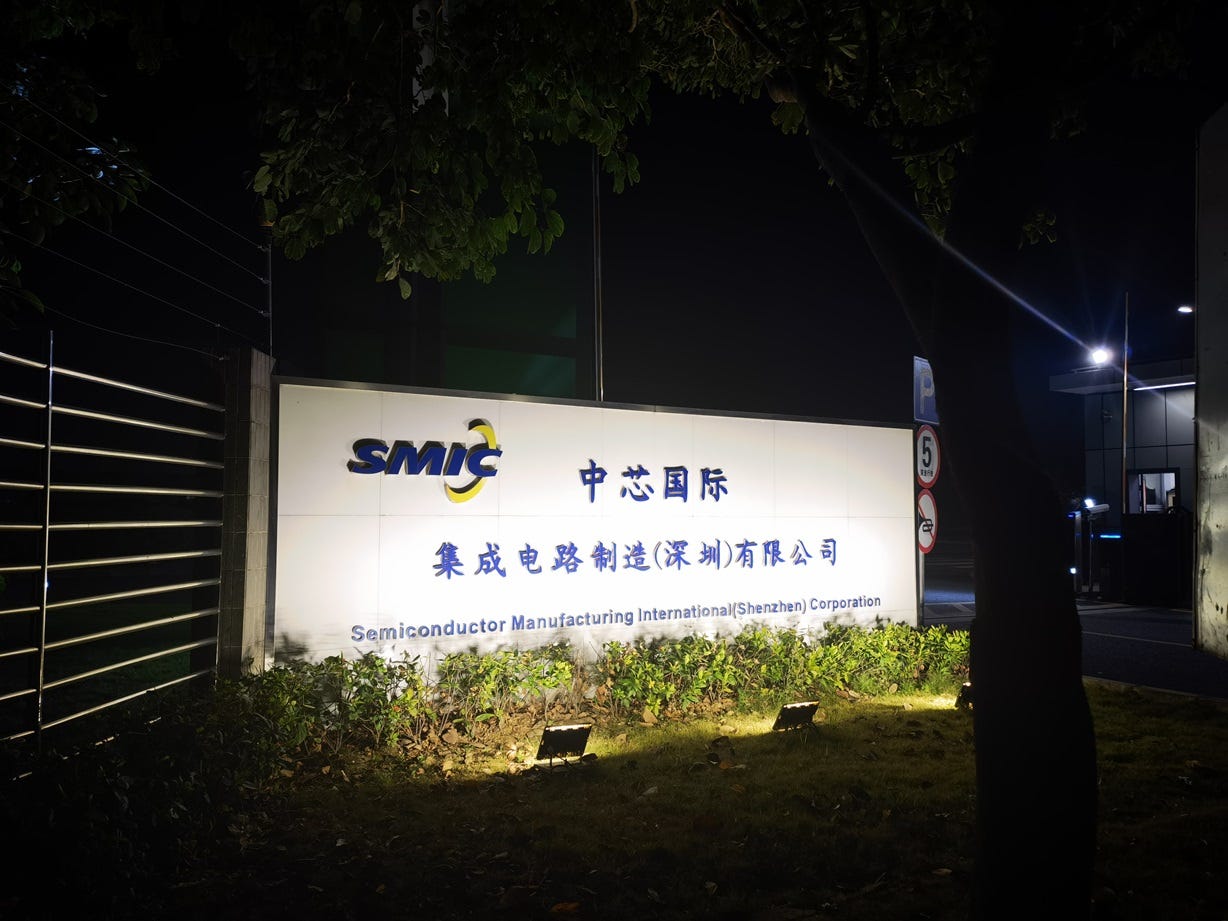Give us your ideas on how to deal with Chinese chips!
A policy competition from the Federation of American Scientists, Chris Miller, ChinaTalk, and me
I’ve got something very special for you today. Instead of telling you my ideas, I’m going to ask for yours!
A year ago, the Federation of American Scientists teamed up with Matt Yglesias to crowdsource people’s ideas about federal policies to increase housing supply. They got some very smart and interesting proposals, so they decided to do more of these competitions.
For the second competition, the FAS and I have teamed up with Chris Miller, the author of the excellent book Chip War, and Jordan Schneider, who runs the excellent blog ChinaTalk. Because this competition is all about how to deal with Chinese computer chips.
The U.S. has implemented export controls to try to stop China from getting a technological edge in advanced cutting-edge chips. But as I explained in a recent post, export controls have no hope of stopping China from building simpler types of chips — called “legacy chips”, “foundational chips”, or “trailing-edge chips”. These legacy chips are used for a huge number of things in our economy, from cars to smartphones to fighter jets.
And China is gearing up to build these legacy chips in absolutely staggering numbers. Check out this post by Jimmy Goodrich of the University of California Institute on Global Conflict and Cooperation and this post by the Rhodium Group for details. Basically, China is applying the same approach to legacy chips that it has successfully applied to batteries and EVs — massive scale and enormous subsidies. Already,
This basically presents at least three potential dangers to the U.S.:
First, China could deprive non-Chinese chipmakers of huge amounts of revenue by outcompeting them in the legacy chip market, making it harder for them to sustain their leading-edge chip businesses. Already investors are pressuring U.S. companies to avoid competing with China by canceling their semiconductor fabs.
Second, if China controls the legacy chip market, it could cut off our supply of chips in a war.
Third, Chinese security services might be able to put back doors into Chinese-made chips, using them to spy or even to attack U.S. infrastructure.
In other words, there are plenty of national security reasons for keeping Chinese-made legacy chips out of our supply chain. But how can we do it? It’s a tough problem.
First of all, as things stand, we don’t even know which products contain Chinese-made chips. If a Vietnamese-made phone or a Mexican-made PC includes Chinese-made legacy chips, the U.S. currently has no way of knowing.
Second, even if we did know, it might be politically unpopular to ban those chips. A lot of U.S. companies want to get chips as cheaply as possible, especially for new AI applications. We’d need some way to make chip restrictions politically palatable.
And finally, lots of Chinese legacy chips — and the products that contain them — aren’t going to be sold in the U.S. or our allied countries. How do we make sure non-Chinese chipmakers stay competitive in markets like Vietnam, Brazil, Indonesia, etc.?
So we’re asking for your help. We’d love your ideas on how to deal with China’s rising legacy chip industry. Here are the details of the competition, and instructions on how to submit your ideas:
Details of the competition
What steps, if any, should the U.S. take to address China’s growing global share of legacy chip manufacturing?
The Federation of American Scientists, Noahpinion, ChinaTalk, and Chris Miller of Chip War are excited to launch a policy proposal contest to source clever ideas on how the US government should respond.
Key angles to explore:
Defining the problem: which dangers of China’s legacy chip industry are the ones the US should take most seriously?
Prioritizing remedies: which mix of potential actions, both on the supply and demand side, would most effectively address the identified concerns?
Strong submissions should run at least 2000 words. For some inspiration on writing structure, see the memos from the Day 1 Project.
To submit your idea, fill out this online form by July 15th. The writer of the best submission will get $500 and an interview on ChinaTalk. Both the winner and the runners-up will get a writeup on Noahpinion. We may also ask one or more of you to go pitch your ideas to folks in D.C.!
Further reading
To see what people are already thinking about, check out the Rhodium Group’s recent report on the topic that gives more market context and introduces a menu of potential policy tools the US government could deploy - though proposals may include others.
Anyway, I’m sure that lots of you can come up with ideas that go well beyond this basic first pass. We’re excited to hear what you come up with!



